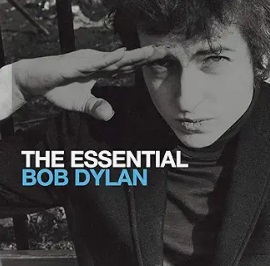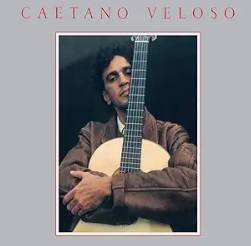Undoubtedly, great songwriters (like artists from other areas) usually find inspiration in books by renowned authors. Furthermore, this circulation of texts among writers is part of literature’s nature itself. In this regard, Irene Severina Rezende, Ph.D. in Literary Studies of Compared Literature, writes, paraphrasing the great Brazilian scholar Antonio Candido, that “literature must be circular, be read and shaped as pleased by each audience, and by the peculiar way of each author” (free translation here and in everything next).
Thus, great songwriters like Chico Buarque, Bob Dylan, Neil Young, Caetano Veloso (among so many others), are able to adapt, in a very intelligent and creative way, the spirit and idea of certain writer into a more popular narrative, in an easier understanding for the modern audience. Therefore, there is no plagiarism, only inspiration.
Some examples of songs influenced by literature are: “Ramble on” by Led Zeppelin (inspired, just like other songs from the band, in Tolkien’s Lord of the Rings); “Monte Castelo” by Renato Russo (it unites a chapter from Paul’s epistle to Corinthians and the most famous sonnet from Luís de Camões); and “Geni e o Zepelim”, that has a close and direct relationship with Guy de Maupassant’s “Boule de Suif” (about this subject, I recommend the reading of Brazilian articles “Similaridades temáticas além-fronteiras: Chico Buarque e Guy de Maupassant” from the aforementioned Irene Rezende and “Geni e o Zepelim X Bola de Sebo: a intertextualidade vista como um procedimento de originalidade” from Fernanda Isabel Bitazi, Master in Literature).
In this article, I’ve decided to write about two songs that suffered literally influences so far unknown or little known: “Gotta Serve Somebody” by Bob Dylan; and “Alegria, Alegria” (Happiness, happiness) by Caetano Veloso.
Nesse texto, decidi escrever sobre duas canções que sofreram influências literárias até então desconhecidas ou pouco divulgadas: “Gotta Serve Somebody” de Bob Dylan; e “Alegria, Alegria” de Caetano Veloso.
Gotta Serve Somebody – Bob Dylan.
The most brilliant American songwriter, Bob Dylan, is a literature savant. Because of that, it is common to see in his songs references to words of master from that genre. It’s the case of “Tangled up in Blue”, which has influences by Dante’s “Divine Comedy” and Theckov’s short stories (Russian who influences the whole “Blood on the Tracks” album).
In the 80’s, Dylan live his “Christian period”, when he wrote several religious songs. Perhaps the most beautiful one has been “Every Grain of Sand”, with several references to Biblical passages and a poem called “Auguries of Innocence” by William Blake.
In those days, one his most popular songs were “Gotta serve somebody”. In the lyrics, Dylan tells us that everyone, regardless of fame or money (rich or poor; famous or unknown), must serve somebody. “It may be the devil or it may be the Lord. But you’re gonna have to serve somebody.”
Anyone can see this clear Christian influence. According to that tradition, we are all equal in God’s eyes, whom we must serve.
Are there any other inspirations besides the obvious biblical tone? I believe so. To my surprise, while reading “Moby Dick” (Herman’s Melville classic), I noticed a passage almost exactly as Dylan’s message. The main character, Ishmael, explains while he is not ashamed of having the most simples job in a ship:
What of it, if some old hunks of a sea-captain orders me to get a broom and sweep down the decks? What does that indignity amount to, weighed, I mean, in the scales of the New Testament? Do you think the archangel Gabriel thinks anything the less of me, because I promptly and respectfully obey that old hunks in that particular instance? Who ain’t a slave? Tell me that. Well, then, however the old sea-captains may order me about—however they may thump and punch me about, I have the satisfaction of knowing that it is all right; that everybody else is one way or other served in much the same way—either in a physical or metaphysical point of view, that is; and so the universal thump is passed round, and all hands should rub each other’s shoulder-blades, and be content.
Practically the same idea passed on by Dylan. “Who ain’t a slave? […] that everybody else is one way or other served in much the same way”. To reinforce my argument, it is important to say that Dylan has showed appreciation for Melville’s famous book in other moments, since he mentioned it in two other songs: Bob Dylan’s 115th dream (several references to Moby Dick, especially when he speaks of a whale and a Captain Arab – Ahab in the book); and Lo and Behold! (“What’s it to ya, Moby Dick?).
Oddly, I have not found any article online dealing with this Dylan’s inspiration in “Moby Dick”, which for me seems extreme likely.
Alegria, Alegria – Caetano Veloso
“Tropicalismo” (Brazilian musical movement from the late 60) was greatly influenced by the 1929 Brazilian Modernism in poetry and its “Movimento Antropofágico” (anthropophagic movement, proposed by poet Oswald de Andrade). During nationalist times in Brazilian music, Caetano, Gilberto Gil (like in his song “Geleia gera”, for example) and the “tropicalistas”, adopted anthropophagy, “devouring” everything around (in music, it meant mainly embracing innovations from British and American popular music).
About “Alegria, Alegria”, Brazilian Literature Ph.D., Júlio Diniz, explains Caetano’s anthropophagic character:
The anthropophagus “tropicalista” runs through his body and, particular, through his voice, the devouring and assimilation of aesthetical and political behaviors in good part opposed to a hegemonic vision of Brazilian culture, defended by segments of the intellectual left, as previously explained. His voice works like a passage place and staying of Bossa Nova, and from the traditional Brazilian music, to “Tropicalismo” – from intimism to excess, from introspection to spectacularization, from the chair and the acoustic guitar to the baroque concert of juxtapositions. Caetano’s voice comes from the mouth of technical cannibal, sweet barbarian that gives back to the exterior everything that was devoured by the ear that internalized the “millionaire contribution of all mistakes”. as previously stated by Oswaldo de Andrade.
However, as a good “anthropophagus tropicalista”, Veloso also assimilated other thinkers into that song, specially Ferreira Gullar. This opinion is not very well known, but the Brazilian poet from Maranhão himself has explained that process:
This partnership was not born from a relationship between Caetano and me. It was Maria Bethânia who asked me if I would like for her two extremely sad lyrics, about jealously, that she wanted to record for her first album. So I did it and handed to her two lyrics, one is “Onde Andarás” and the other is a poem, also from the same book, that I had adapted to serve as lyrics, since it was too long. But Caetano only put melody to one of them. The other poem I think inspired “Alegria, Alegria”, because it says “atravessa a rua, entra no cinema” (crosses the streets, enters the movie theater) and it’s an urban poem that speaks exactly about the city and the focus is the same. The fact that he did not put melody to my poem and wrote “Alegria, Alegria” gives the impression that he thought it best to write a song about that subject. There is in “Alegria, Alegria” an expression that comes from my poem: “o sol se reparte em crimes” (the sun split into crimes). This comes from one of my poems that says: “the afternoon splits into yogurt, curd, glasses of milk”. This use of the verb spilt comes from the poem “Na Leiteira”. “The afternoon split into glasses of milk” (note: in the poem), “the sun splits into crimes/ military spacecraft” (note: in the song). That’s all right. That’s the function of poetry, the poet invents expressions and popular artist, o songwriter does not have that job – it is more of communicating in a wider way with the public, it is not about changing language, reinventing language; that is more from poets […]
Essential to repeat that those “revelations” in no shape of form reduces the importance and greatness of Dylan and Veloso. One can use, as an analogy, the words of Fernand Bitazi about Buarque and Maupassant, and say that “Alegria, Alegria” and “Gotta serve somebody” keep their originality, since they follow a “creative process consisting not of a negligent and direct imitation, but rather an accurate and indirect imitation”.






